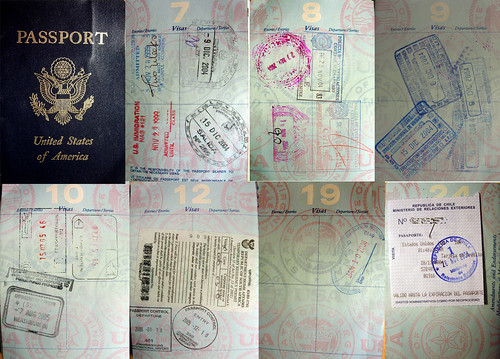Recently, Andrew Dunkle of GoOverseas posed the open question, “what makes a good global citizen?”
This got me thinking about what the term means to me, having studied International Studies at my university and having lived abroad previously. To me, the essence of being a citizen of the world is not to be a nomadic globe-trotter who has had to add pages to my passport seven times, but rather, to be someone who has been changed by being abroad. As someone who went through culture shock, questioning the way things were done abroad, and then experiencing reverse culture shock when back home, I realized that I actually missed the differences.
Ergo, I believe it means to be someone who is willing to grow, and willing to learn when he/she has been wrong.
Perhaps one of the biggest challenges of living and traveling abroad is to accept the cultural differences. Really, this requires a fundamental change in thinking. It requires understanding that there are other ways of doing things. This is one of the hardest things to accept: that perhaps doing things the way you’re used to isn’t the best way after all. Taking it a step further, it requires not only understanding, but appreciation, respect, and even developing a love of the differences. After all, craving something different is what pushes so many of us to travel in the first place, isn’t it?
As travelers aspiring to be good global citizens, I believe the single most important trait is to stop looking for answers, and instead to ask questions. After all, life is about questions: What will this journey bring? How do other people in the world lead their lives? Why are these people so happy even though they have nothing? Why can’t I be happy even though I have so much more? Why do we do things this way? Why ARE we here? What does all of it mean?
I’ve heard it said before that it is about the journey rather than the destination. I hate a silly cliche as much as the next person, but damnit, this one’s true. More than that, the journey is internal just as much as it is external, forcing us to question who we are and what we believe.
Personally, living abroad brought me a new appreciation for my home country, along with a whole host of questions about how we run things around here. Before experiencing life abroad, it was easy to complain about never having enough. Not enough jobs, not enough health coverage for the sick, not enough access to affordable education, too much debt, too much greed, the list goes on. After coming home, I realized that while all of these things are still problems, they are laughable compared to what those in developing countries go through.
It also made me realize that happiness isn’t bought. There are ups and downs for everyone in the world, from the poorest farmer to the richest tech billionaire, we’ll always find problems, and we’ll always seek solutions.
So, as global citizens, we all have a very important responsibility: to respect and admire, to leave each place a little bit better than when we arrived, to care about social injustice and to do something about it, to never lose the hunger to learn, and to always appreciate the gift we’ve been given: the ability to experience the world. So many will never have this gift.
It’s certainly not easy, and I have to gently remind myself each time I travel to try to be more understanding and appreciative.
In closing, I want to know, what made you realize that you’re a global citizen as it fits your definition? What do you do to be a better global citizen? Most importantly, how has being abroad changed you?
This guest blog is by Ava Apollo.

Ava Apollo grew up in Southern California where she was exposed to a wide variety of languages and cultures. After her university years, Ava spent a year in Taipei where her love of travel, Chinese language, and writing were intensified.
Ava has since returned to California, however, she remains a lover of writing about Asia and traveling the world. When she’s not writing for MSW, Ava’s blogging about love and life along with her friends Stella Sage and Bella Blue on Super Blogettes.











